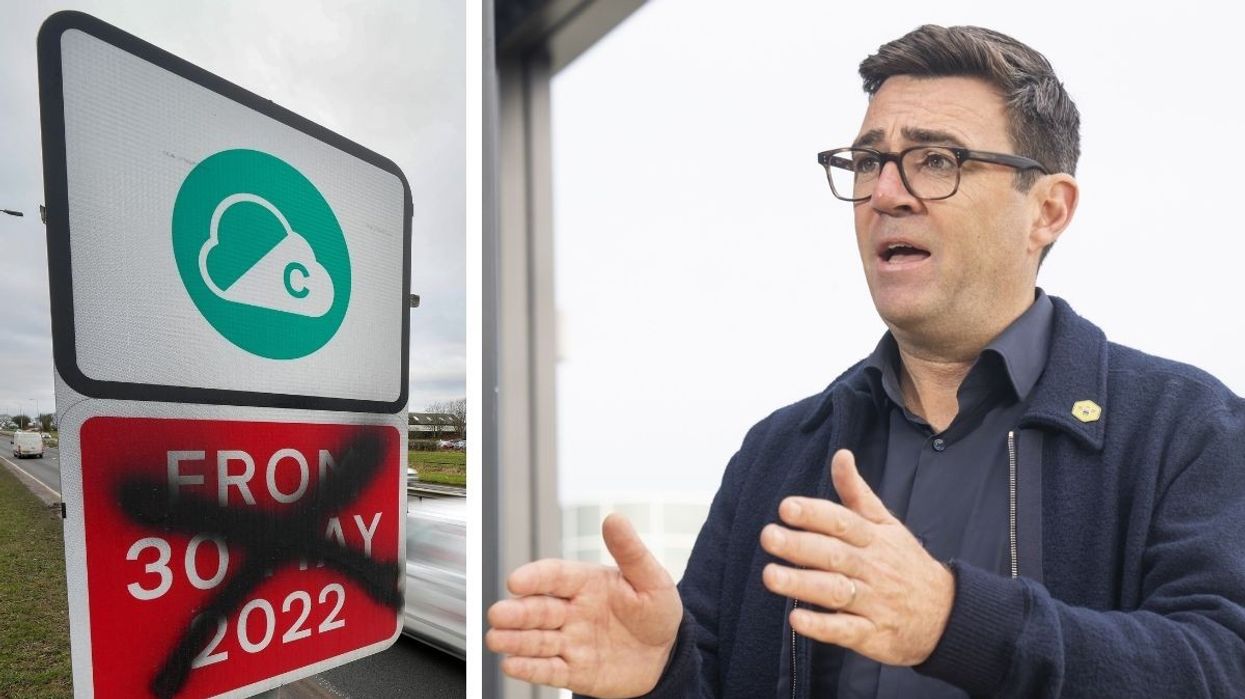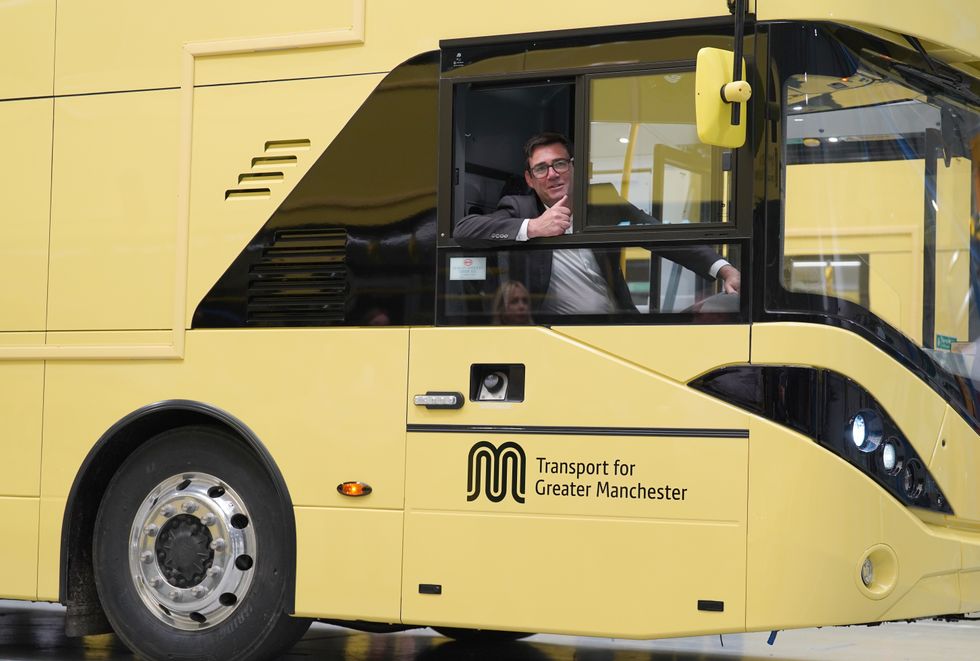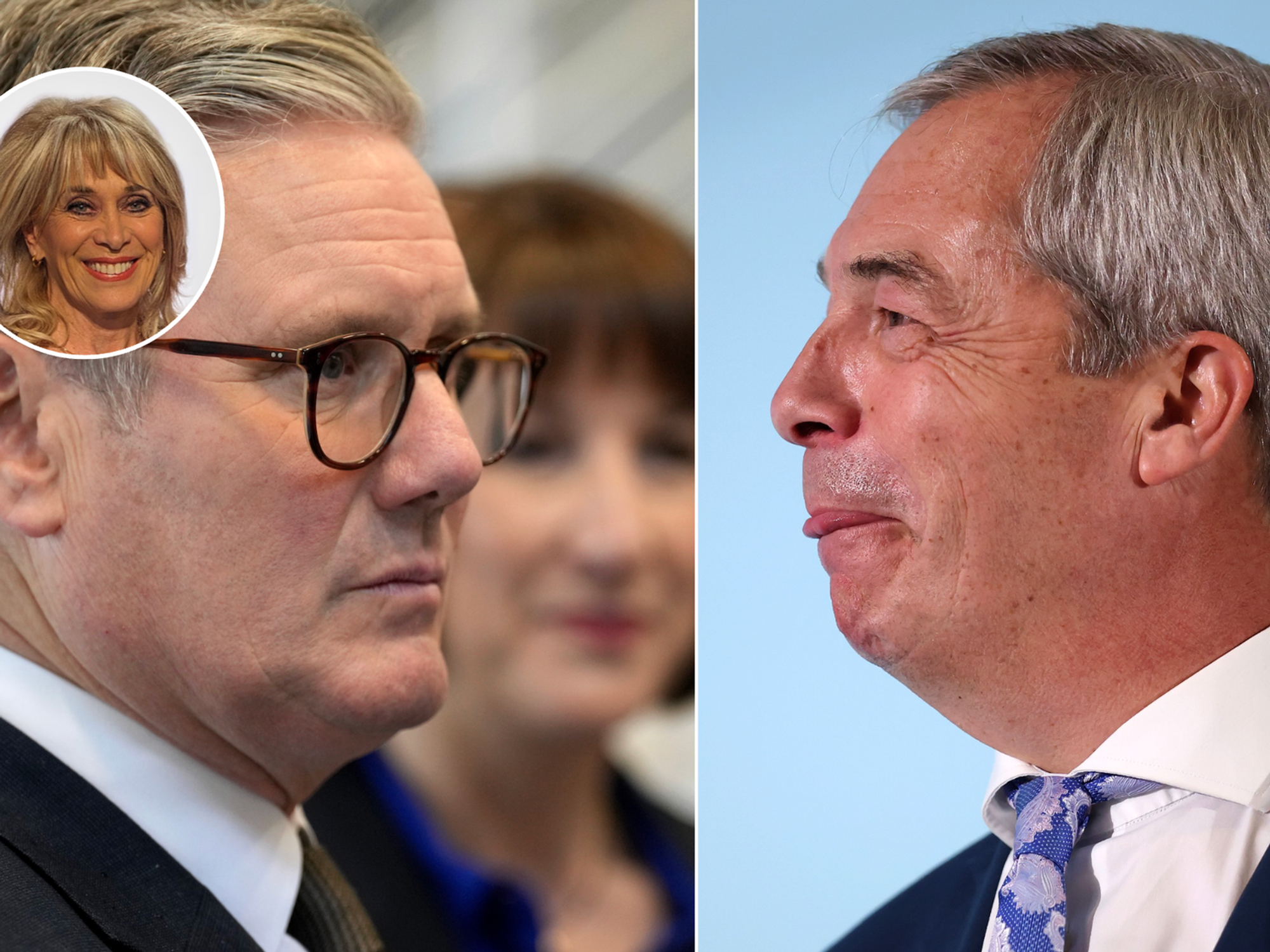Manchester Clean Air Zone update expected soon after urgent review of national scheme

Andy Burnham said any Clean Air Zone would not charge people to enter
|GETTY/PA

A decision on the national bus retrofit scheme is expected to come in autumn
Don't Miss
Most Read
Latest
The introduction of Manchester’s Clean Air Zone could see progress in the coming months, with decisions expected later this year potentially helping Andy Burnham launch new scheme proposals.
There were plans for Greater Manchester to introduce a charging Clean Air Zone on May 30, 2022, where the most polluting vehicles are charged a daily fee, although private cars would have avoided charges.
Greater Manchester’s Clean Air Zone would have been one of, if not, the biggest emissions-based charging zones in Europe.
It would cover an area of 495 square miles and include 10 boroughs - Bolton, Bury, Manchester, Oldham, Rochdale, Salford, Stockport, Tameside, Trafford and Wigan.
WATCH NOW: Andy Burnham fights back against Clean Air Zone charges
However, plans were halted last year because of fears around people being able to access cleaner vehicles and avoid the expensive costs.
In April earlier this year, the Government announced a review of its national bus retrofit programme given a “variable” performance in reducing emissions.
The aim of the review will be to investigate the causes and how the performance of the programme can be improved.
It is expected that the findings will be released in autumn, with this set to have an impact on the future of the Clean Air Zone.
Andy Burnham launched the Bee Network this year with 50 British-built zero emission electric buses on the roads, with 50 more to come in the future, despite some criticism from some local MPs.
Speaking to GB News Political Editor Christopher Hope, Andy Burnham called on the Prime Minister to back the Bee Network, as it would support the city, residents and taxi drivers in the process.
He added: “We are confident and that the evidence backs this up that if we were to if the Government was to back the Bee Network i.e., help us bring more electric buses into service across the city region.
“But if it was also to back us with investment to help our taxis improve, our Hackney cabs upgrade, we believe we can do it via an investment-led approach rather than a charging-based approach.
“Can we now then agree that a Clean Air Zone is not right for Greater Manchester charging zone?”
Using the Clean Bus Funds, Greater Manchester has been able to “retrofit” more than half of the region’s buses with emission-reducing technology.
Because of the delay to the national scheme, Clean Air Greater Manchester has been unable to submit evidence to the Government about an “investment-led, non-charging” Clean Air Zone.
Greater Manchester Mayor Andy Burnham has been adamant that he would not allow a Clean Air Zone to be active in the area if it was charging drivers.
He said: “No I won't have one. I said when I came in, I wouldn't have a congestion charge and I also said I wouldn't have a charge in a Clean Air Zone.
“Why? Because, I mean when we first developed the clean air zone idea, it was meant to be enough money in the system to help everybody upgrade their vehicles.
“And then with the pandemic the cost of vehicles spiralled and hence there was the backlash which was understood and justified and why GM is now in a different position. We are saying that you can do this in a different way.”
Clean Air Greater Manchester said a GM Clean Air Plan will achieve compliance and that it remained committed to an investment-led, non-charging Clean Air Plan and is continuing to work towards being a cleaner, greener city-region – including through delivery of the Bee Network.”
Under the previous rules, hackney cabs and private hire vehicles would have been charged £7.50 per day, although an exemption was in place for local vehicles until June 2023, had it gone ahead.
LATEST DEVELOPMENTS:

The Bee Network launched earlier this year with 50 British-made electric buses
|PA
Minibuses, vans and light goods vehicles would have been charged £10 per day, with owners of heavy goods vehicles, buses and coaches facing a daily cost of £60.










